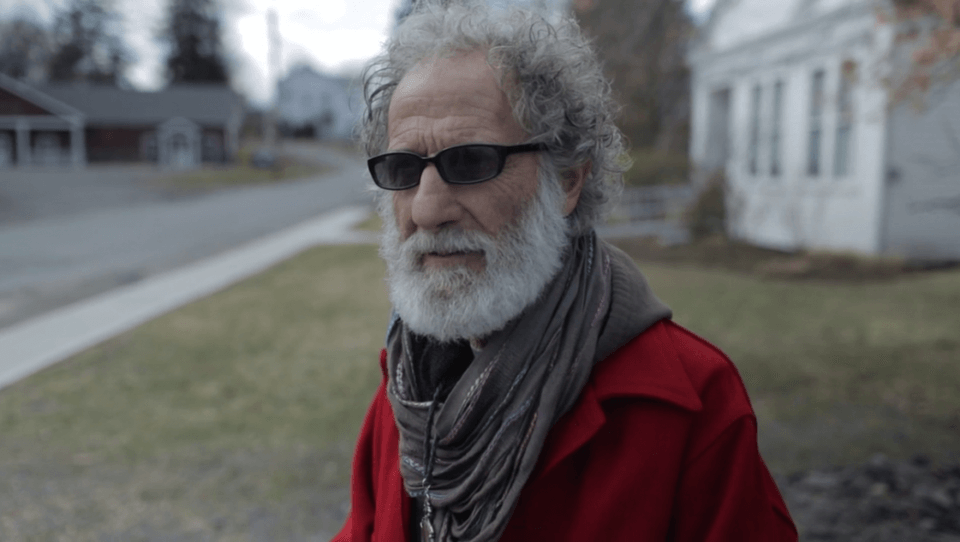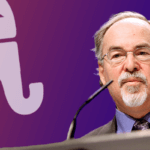
“I knew the consequences of looking into public corruption. You’re not going to make many friends, and you’re certainly going to make many enemies.”
Frederick T. Martens was the Executive Director of the Pennsylvania Crime Commission, a body designed to investigate organized crime and public corruption. The Commission was closed in 1994, after investigating the corruption case of Ernie Preate, who was the Attorney General of Pennsylvania at the time. Hailing from New Jersey, Mr. Martens has also served as a detective in the New Jersey State Police. He is also the author of We’ll Make You An Offer You Can’t Refuse: A Primer On The Investigation Of Public Corruption. Mr. Martens joins Merion West‘s Erich Prince to discuss public corruption and the fundamental issues that sometimes impede combatting it.
The first thing I want to ask you about, Mr. Martens, is something you’ve touched on in your book. You’re a New Jersey guy. What makes New Jersey so associated with corruption? We’ve had events from Abscam to Bridgegate, but is there some aspect of New Jersey—I know you’ve mentioned the number of townships, for example—that makes it particularly susceptible to corruption?
There are a couple of issues. One, of course, is that New Jersey is the most densely populated state in the nation. We have 521 municipalities and 21 counties. On top of that—is a state government. So approvals before zoning boards, planning boards, health departments and all the myriads of government can often result in a variety of corrupt acts—bribery and kickbacks being the most common. So with that much government, corruption is inevitable. In many respects, over-regulation and excessive bureaucratic demands create a ripe environment for corruption.
Is that the sort of sentiment that you think may have contributed to Governor Christie’s election in the first place? “We’ve got too much regulation, too much government. Let’s get a Republican with a prosecutor background in here.”
I think that was definitely a factor but perhaps not the factor. New Jersey is a moderate state. It does not want more government; government increases taxes. We are one of the most highly taxed states in the nation. The current dissension between the president of the Senate, Steve Sweeney, and the Governor, Phil Murphy, who are both Democrats, represents the dichotomy between a moderate Democrat and a progressive Democrat. Sweeney is more in line with Christie: regionalize services, reduce the size of government, and cut spending. Murphy is more liberal.
What’s the worst incidence of public corruption that you saw during your time in the trenches?
I saw and investigated so much corruption throughout my career, it’s hard to say which was the worst. Right now, I am in the process of analyzing the volumes of evidence in what was an infamous prosecution—that of the late Rubin “Hurricane” Carter. Remember the song by Bob Dylan and the movie starring Denzel Washington, The Hurricane? Carter was convicted twice for the murders of three white patrons in a bar in Paterson, NJ in 1966. I grew up in Paterson and worked undercover there, investigating drug trafficking, gambling and prostitution. Paterson was a city that was not just corrupt; it was systemically corrupt. The police were renowned for “flaking,” planting drugs on suspects. It is still occurring today.
The Carter prosecution was reversed both times; 14 judges found that the prosecution withheld crucial evidence from the defense. Denying the accused a fair trial through a conscious decision to withhold exculpatory evidence is a form of corruption. On top of this, it was alleged that the murder was racially-motivated. This too resulted in overturning the verdict. What is the most disturbing aspect of the case is that two of the persons murdered were known bookmakers. The Genovese Crime Family had a lock on gambling in Paterson, paying off members of the vice squad and folks in the prosecutor’s office. And no one investigated the obvious connection between these murders and the Mafia? Why? Simply it would have exposed the corrupt alliances of the police, the politicians, and the Genovese Family.
There was a “war” going on between the black numbers writers and the Genovese Family. The police were on the side of the Genovese family. They were arresting those who were attempting to break away from the Mafia. Every effort was made to deflect the investigation from the obvious relationship between the police, the politicians, and the Mafia. It was a classic technique that the New Jersey State Police encountered when it arrested and prosecuted vice detectives in the Police Deprtment and prosecutors office for taking payoffs from bookies. Corruption in Paterson was pervasive then, and today police continue to be arrested for planting drugs and guns on suspects. They also shake down drug dealers. They arrest numbers writers and prostitutes that are not paying the police off. This is just the tip of the iceberg.
What is the disincentive or effect on people within the law enforcement community to blow a whistle on public corruption?
Whistle blowers, whether in government or the private sector, do not survive long. They tend to be ostracized. One need only to revisit what happened to Frank Serpico when he exposed systemic corruption in the New York City Police. Chances are that you will ultimately be discredited by your own agency, labeled a malcontent, and most likely be fired. Whistle-blowers do not have longevity.
So do you want to briefly say what the Pennsylvania Crime Commission was and then tell the story of the events that led to its fallout?
The Pennsylvania Crime Commission’s primary mission was to look at organized crime and public corruption. It was legislated to look into both organized crime and public corruption. When I became the executive director, the commissioners were concerned about the lack of any serious investigation into public corruption. So they put a primary focus on looking into public corruption.
Now needless to say, I come from New Jersey. I knew the consequences of looking into public corruption. You’re not going to make many friends, and you’re certainly going to make many enemies. So, at the end of the day, if that’s going to be where you are going to look, be prepared because you’re going to have any number of political interest groups that are going to be looking to put you out of business. Nobody wants to really look at public corruption. So we started primarily at the local levels. We started looking at corruption at local government levels, within some police departments throughout Pennsylvania. We were basically doing what I call, “low-hanging fruit investigations.” When we looked into corruption, we would hear different things about police departments or public officials at the local level that were involved in corruption.
Then one day, two of my agents went out to prison to interview a guy by the name of Elmo Baldassari. Elmo was a local racketeer from the Scranton area. He was involved in many number of illegal activities, primarily gambling, but to some extent loansharking and stolen property. Well, my agents go out and interview him. At the end of the meeting, they asked him a question, “What can you tell us about public corruption?” His response was simply: “You wanna know about public corruption? I’ll tell you about public corruption. I made Ernie Preate the attorney general.” That was quite a statement.
Now look, you get a statement from a racketeer basically. He was in jail because he had made a loan to a local businessman, and he himself went to collect it with a baseball bat. And upon entering the building, he was arrested by the FBI. So he was put into jail. The agents interviewed him, and he made this statement. What was the probability that you’re ever going to corroborate something like that? And secondly, what’s the probability that you think using him as a witness is going to result in any kind of conviction? So you got a real problem here.
When I brought that to the attention of the chairman of the commission, I’ll never forget his words. He said, “You’ve got to go ahead. Do you have any doubt as to the veracity of this particular charge?” I said, “I don’t. But Mike, if you are going to go down that road, you know where is it going to lead?” He said, “Well, that’s our job.” So we went down that road, and we began the investigation. That was in 1992.
It took us all of two years to really get to where we got. And where we got is we were able to demonstrate that when he said, “I’ve made Ernie Preate create the attorney general,” what he was talking about was that he arranged for video poker vendors throughout the Northeast part of the state—and then throughout the entire state—to basically funnel money into the campaign of Ernie Preate for attorney general when he was the district attorney of Lackawanna County. So we began that investigation in ‘92, and, of course, you’ve got to give out subpoena; you’ve got to analyze book records; you’ve got to analyze financial records and campaign contributions. So we tried to corroborate what Baldassari told us.
And in the course of the investigation, of course, we were confronted with adversaries, to say the least: one a senator by the name of Vince Fumo, another by a member of the state house. So we were confronted. The Attorney General’s office made overtures to the entire legislature that it’s time to get rid of the crime commission: “They’re on a witch hunt. They’re on a wild goose chase. They’re this, they’re that. They’ve gone beyond their mandate.” State senators were saying the same thing, “Why are you doing this investigation?” Why are we doing it? Because it’s our legislative mandate, that’s why we’re doing it. You’re the legislature. You told us this is what you want done. “Well don’t you think you should give something like this to the federal government?” We said, “They had the case. And it went nowhere.” “Then why do you think it’s going anywhere with you?” “Because we’ve got a witness now.”
So we were constantly being bombarded with interference in the investigation, but, as a consequence of that investigation, we were able to put together what we considered a fairly solid indictment as to video poker vendors basically being solicited/extorted by the attorney general for campaign contributions. And as a consequence, we delivered that to the legislature before we went out of business. In the meantime, the legislature voted us out of business, and we had to close our shop by July 1st 1994.
And you think the legislature was potentially afraid that you were going to uncover things about the legislature?
I think what it was is that we had the audacity to go after a sitting attorney general. And if we had the audacity to do it with an attorney general, we would do it with any one of them. In other words, they looked at it from the point of view of, “Hey it could be me next time.” They began to think: why should we be funding a state agency to look at corruption when it may be us to look at?
So there’s a significant potential problem any time a government is appointing any sort of investigators to look at another part of the government. There’s just fundamental tensions or concern there.
Of course. And like I said, “If they can look there, they can look here.” I think there’s this basic aversion on the part of politicians to have oversight bodies, particularly corruption oversight bodies.
We talk about how we want regulators on Wall Street such as the SEC—or that we need an FDA. But who’s regulating the politicians?
Allegedly, they have their own ethics committees that supposedly regulate them for ethical violations. You know how that goes. In fact, in this particular Preate case that we’re talking about, the state election commission did nothing. We brought it to their attention what was going on, and they did virtually nothing about it. They knew the consequences of following-up. Most of those agencies are toothless, to be honest with you. Most of those regulatory bodies are toothless, and even if they are not toothless, they know the consequences of doing something about it. You have to remember that most of these people are civil servants who are working from paycheck to paycheck. They’re looking to get retirement, and they’re looking to get out at some point, not lose their job for anything. So as a consequence, they’re often not looking to upset the apple cart too much.
Mr. Martens, thank you for your time today.
Of course, Erich.










